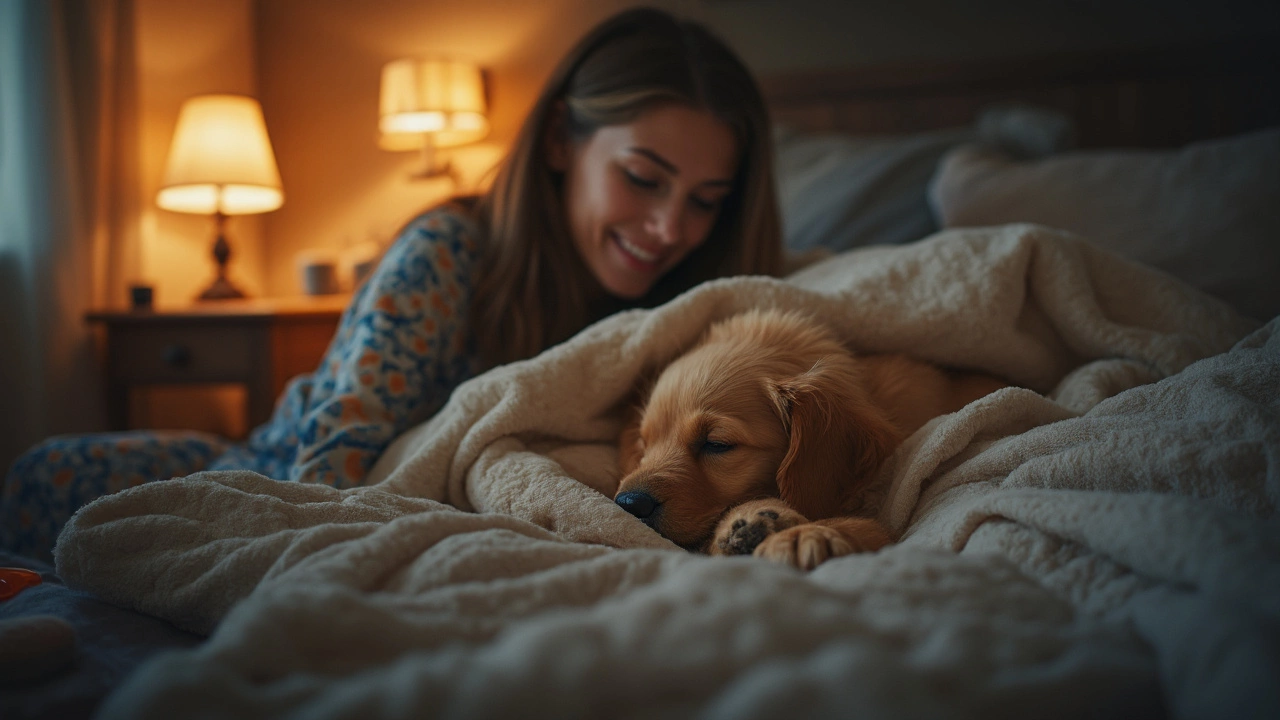Puppy Sleep Tips: Simple Ways to Give Your Pup the Rest It Needs
Just brought a puppy home? You’ll notice the tiny bundle of energy napping a lot—sometimes up to 18 hours a day. That’s normal. Puppies grow fast, and sleep is the fuel that powers their brain, muscles, and immune system. If you understand how sleep works for a pup, you’ll avoid frustration and set the stage for a calm, well‑adjusted dog.
How Much Sleep Does a Puppy Really Need?
Age is the biggest factor. A 2‑month old generally needs 18‑20 hours of sleep, while an 8‑month old drops to 14‑16 hours. Expect lots of short naps spread across the day and night. When a puppy’s sleep schedule looks chaotic, it’s usually because they’re still learning when it’s safe to be awake. Keep an eye on the pattern: if they’re waking up every hour or seem restless, check for hunger, a dirty potty area, or a noisy environment.
Setting Up a Safe and Cozy Sleep Spot
Pick a quiet corner, a crate, or a low‑profile dog bed. Crates work well because they mimic a den—tight, warm, and secure. Line the crate with a soft blanket and a chew‑proof toy. If you use a regular bed, make sure it’s non‑slip and easy to clean. Keep the spot away from drafts, direct sunlight, and loud appliances. A consistent sleep area helps the puppy associate that space with rest.
Temperature matters too. Puppies can’t regulate body heat as well as adults. Aim for a room temperature of about 68‑72°F (20‑22°C). If it gets cooler at night, add a lightweight blanket; if it’s warm, a fan on low can keep the air moving without blowing directly on the pup.
Now, create a bedtime routine. Dogs are creatures of habit, so a short, calm sequence signals that it’s time to wind down. A typical routine might look like this:
- Last bathroom break 15‑20 minutes before bedtime.
- Low‑key play for five minutes—just a gentle tug or a soft ball.
- Turn down the lights, mute the TV, and lower any music volume.
- Give a quick belly rub or a gentle massage for a minute or two.
- Place the puppy in the chosen sleep spot and say a cue word like “sleep” or “night.”
Keep the routine under ten minutes. Too long and the puppy may get excited again; too short and they won’t register the pattern. Consistency is key— repeat the same steps every night.
What about night waking? Most puppies will need one or two bathroom trips early in the night. Take them out calmly, avoid play, and return them to their sleep spot immediately. If they try to climb out of the crate, consider a slightly larger one or a low‑profile barrier to keep them safe without feeling trapped.
Common sleep problems often stem from over‑stimulation. If your pup has had a big play session right before bed, they may be too pumped to settle. Likewise, feeding a large meal right before bedtime can cause digestive discomfort. Aim to feed the main meal at least two hours before sleep and keep evening snacks light.
Finally, watch for signs of sleep disorders. Excessive whining, sudden bursts of energy at night, or frequent nightmares (you’ll see twitching or whimpering) could indicate anxiety or health issues. In those cases, a vet check‑up is worth the time.
Putting these tips into practice will help your puppy get the deep, restorative sleep they need to grow into a happy, healthy dog. Remember: a well‑rested pup means fewer chewed shoes, less barking, and a stronger bond with you. Sweet dreams, both of you!

Can an 8 Week Old Puppy Sleep Through the Night? What to Expect
Worried your 8 week old puppy won't let you get any rest? This article explains what’s normal for puppy sleep at this age and why their nights don't always match yours. You’ll get real-world tips for helping your pup (and you) get more sleep. Learn how long puppies can actually hold their bladder, and find out how to set up bedtime for better nights. Whether you’re a first-time puppy parent or just need reassurance, this guide has you covered.
View more